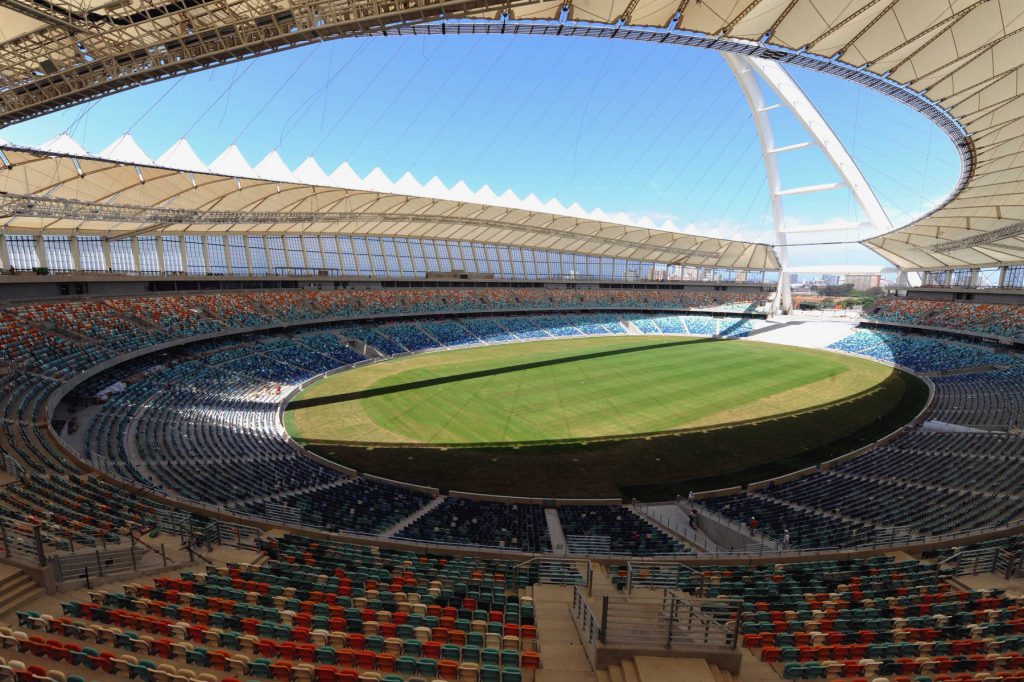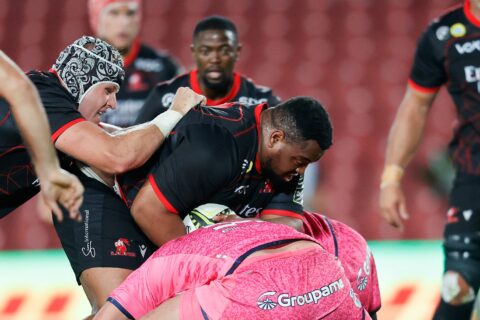Business Day Business Of Sport
Is SA Benefitting From The Legacy Of The FIFA World Cup?
Posing the question to Tex Riba, head of Sales and Stadium Commercialisation at SAIL – the commercial partners to Stadium Management South Africa (SMSA) for the past seven years – the answer as to whether our stadiums are profitable is a cautious “yes”.
SMSA manages four flagship stadiums in Johannesburg, including the iconic FNB Stadium, and Riba says stadiums can make money if they create events that attract both fans and corporates.
There’s no doubt that stadiums are big business. Shahid Khan, the billionaire owner of the Jacksonville Jaguars, has reportedly made an offer of £800-million for London’s Wembley Stadium – that’s a lot of ticket sales to make back that sort of cash.
But it’s not only about tickets, explains Riba.
“FNB Stadium hosted 31 events in a year, almost twice as many as any other stadium in South Africa. These events drive the commercial model (revenue streams) on a number of levels from ticket sales, to hospitality, to stadium naming rights etc. It is all about getting fans into the stadium and creating experiences to ensure they keep coming back, which will in turn attract corporate partners.”
Thirty-one events are impressive but a 2016 report revealed that the world’s most lucrative stadium – the Staples Center in Los Angeles – hosts at least 140 events each year. It has the advantage of being home to four teams – the Lakers, Clippers, Sparks, and Kings – while the FNB Stadium, aka the Calabash, is home to just one: football giants Kaizer Chiefs.
The Cape Town Stadium is perhaps the worst example of a stadium that has struggled to find itself a sustainable business model. Built at the behest of Fifa for 2010 so that the iconic Table Mountain would provide a fitting backdrop, it has been a burden on the city’s coffers. In 2016, Cape Town deputy mayor Ian Nielson admitted the stadium was running at an annual loss of R40-million. The Western Province Rugby Union has seemed reluctant to move from Newlands to Green Point, but in January 2018, Sport24 reported that they were in talks with the city to do just that. In May, the stadium hosted the PSL’s Nedbank Cup Final, it is now the host of the South African leg of World Rugby’s Sevens Series.
City of Cape Town Mayoral Committee member Stuart Diamond announced in December 2017 that the new board established to run the stadium was going to sell the naming rights.
“In order to make the stadium more sustainable, one of the aspects we’re looking at now as part of our commercialisation plan is to put out the naming rights for the stadium which should bring in some revenue for Cape Town Stadium to make it more profitable,” said Diamond.
The process was supposed to be finished by the end of March 2018, but no decision has yet been announced.
According to Riba, this is exactly why stadiums need to diversify and host multiple events that appeal to all sorts of people. He adds that SMSA’s successes are due to the fact that they host soccer, rugby, music (U2, Lady Gaga and, to the delight of raging teens, Justin Bieber), as well as church events. “We are now also creating our own events, with the successful launch of the SMSA Tournament and the Shell Helix Ultra Cup in May. Our stadiums also have conference rooms and auditoriums that can be rented out by corporates, and are hired by agencies to film adverts.”
Riba says the message from the US is that stadiums need to create experiences that make fans want to attend live events. Then, while they are at the stadium – and a captive market – maximise the commercial opportunities of selling them food, merchandise, services and content.
Durban’s Moses Mabhida Stadium, home ground of the Premier Soccer League team AmaZulu, is also a multi-use stadium. In addition to a retail component to attract revenue, it also offers adventure activities, including a world record Big Swing (at R695 a pop) where thrill-seekers can free fall 80 metres into the stadium bowl.
Internationally, stadiums are investing in technology to drive revenues. At the Millennium Stadium in Cardiff, for example, Cisco Systems has fitted a £2.7-million video and digital platform to boost advertising revenues. Their US cousins are also embracing tech with the AT&T Stadium, home to the Dallas Cowboys, investing in apps that flash lights on fans’ cellphones when the Cowboys score and allows them to post photos from games on an electronic billboard.
These initiatives give corporate sponsors the opportunity to use stadiums to build awareness of their brands. Riba says SMSA is launching a stadium app for the start of the next PSL season with various features and benefits for fans. “We believe this will add to the experience as stadiums become ‘connected’ environments through technology,” he says, adding that recent research revealed that what fans want most is good Wi-Fi.
According to Riba, the Calabash is SA’s only profitable stadium at the moment. He says there are a number of stadiums that are currently costing taxpayers a lot of money, post the World Cup. “They need to change their business model of how they do things and maybe look at SMSA and how we have managed to make the FNB Stadium profitable.”






 Sign-up and receive the Business Media MAGS newsletter OR SA Mining newsletter straight to your inbox.
Sign-up and receive the Business Media MAGS newsletter OR SA Mining newsletter straight to your inbox.